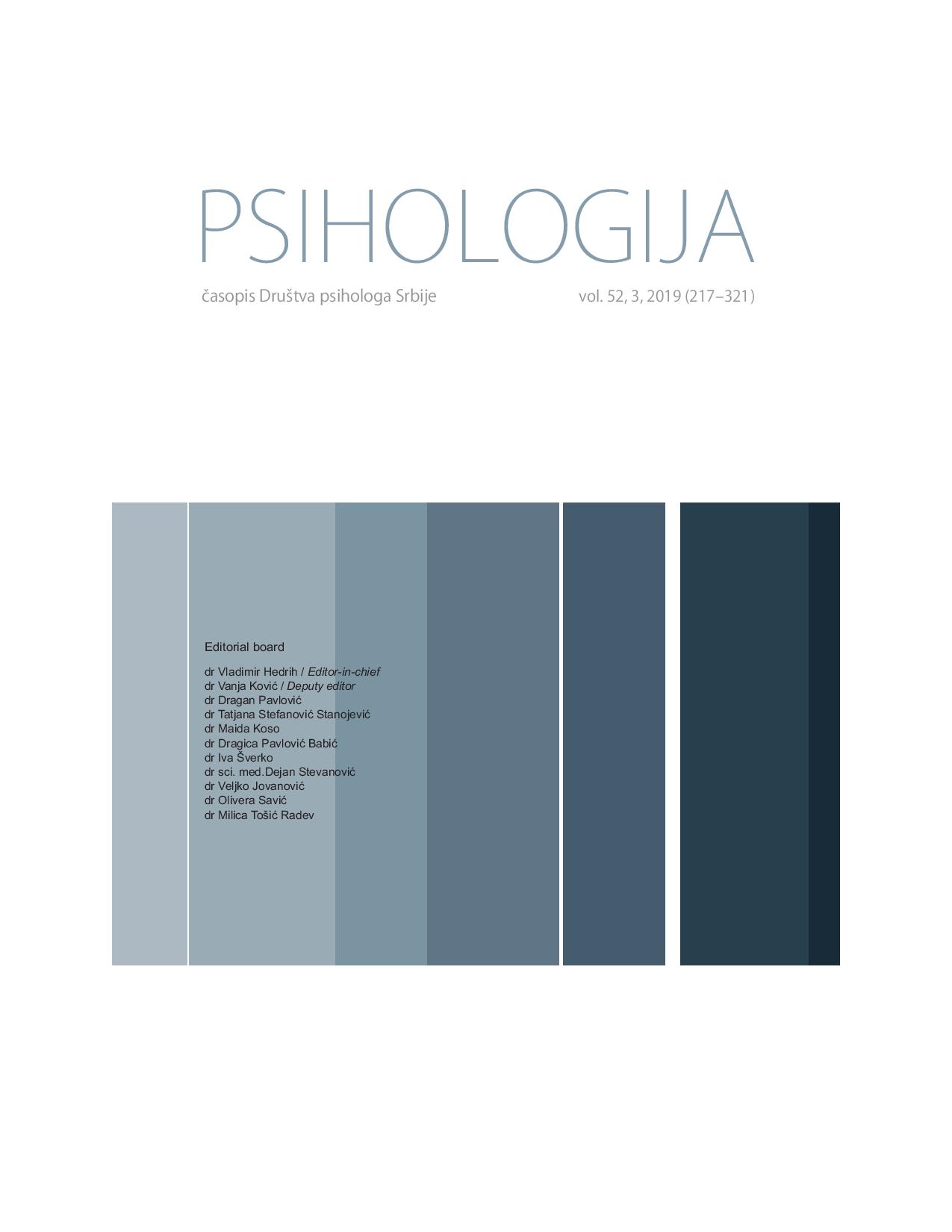The assessment of effects of partialling out of socially desirable responding variance on personality traits scores in instructed applicant situations
The assessment of effects of partialling out of socially desirable responding variance on personality traits scores in instructed applicant situations
Author(s): Goran Opačić, Tatjana Mentus-KandićSubject(s): Social Sciences, Psychology, Individual Psychology, Personality Psychology
Published by: Društvo psihologa Srbije
Keywords: psychometrics methods;socially desirable behaviour;psychological testing;personality assessment;
Summary/Abstract: The aim of this study was to examine the extent to which the socially desirable responding(SDR) distorts results of HEDONICA personaliy inventory (acronim based on eightdimensions of this inventory: Honesty, Disintegration, Impulsiveness, Openness, Extraversion,Neuroticism, Conscientiousness, and Agreeableness). The inventory HEDONICA was mergedwith components of the Balanced Inventory of Desirable Responding (BIDR) as a controlinventory and was administered to a sample of 227 students under two experimental situations/contexts, operationalized by two instructions: the standard (S) one (such as “be honest”) andthe “fake good” (FG) one (such as “portray yourself in a most positive way”). Comparingscores in S and FG situations by using MANOVA, a clear distortion on all personality traits insocially desirable directions were evidenced. When, however, the BIDR subscales in the FGsituation were entered into MANOVA as covariates, differences between personality scores inS and FG sitautions were considerably reduced, and became statistically insignificant on fivepersonality dimensions. When the variance of dimensions of the BIDR inventory was removedfrom the variance of HEDONICA traits in FG situation, the change between intercorrelationsof personality dimensions in S and FG situations did not attain statistical significance. Thislead to the conclusion that the SDR bias, if even does affect test results (i.e., enhances scoresin FG situation), does not affect the scale structure and predictive validity of the examinedpersonality inventory.
Journal: Psihologija
- Issue Year: 52/2019
- Issue No: 3
- Page Range: 303-321
- Page Count: 19
- Language: English

